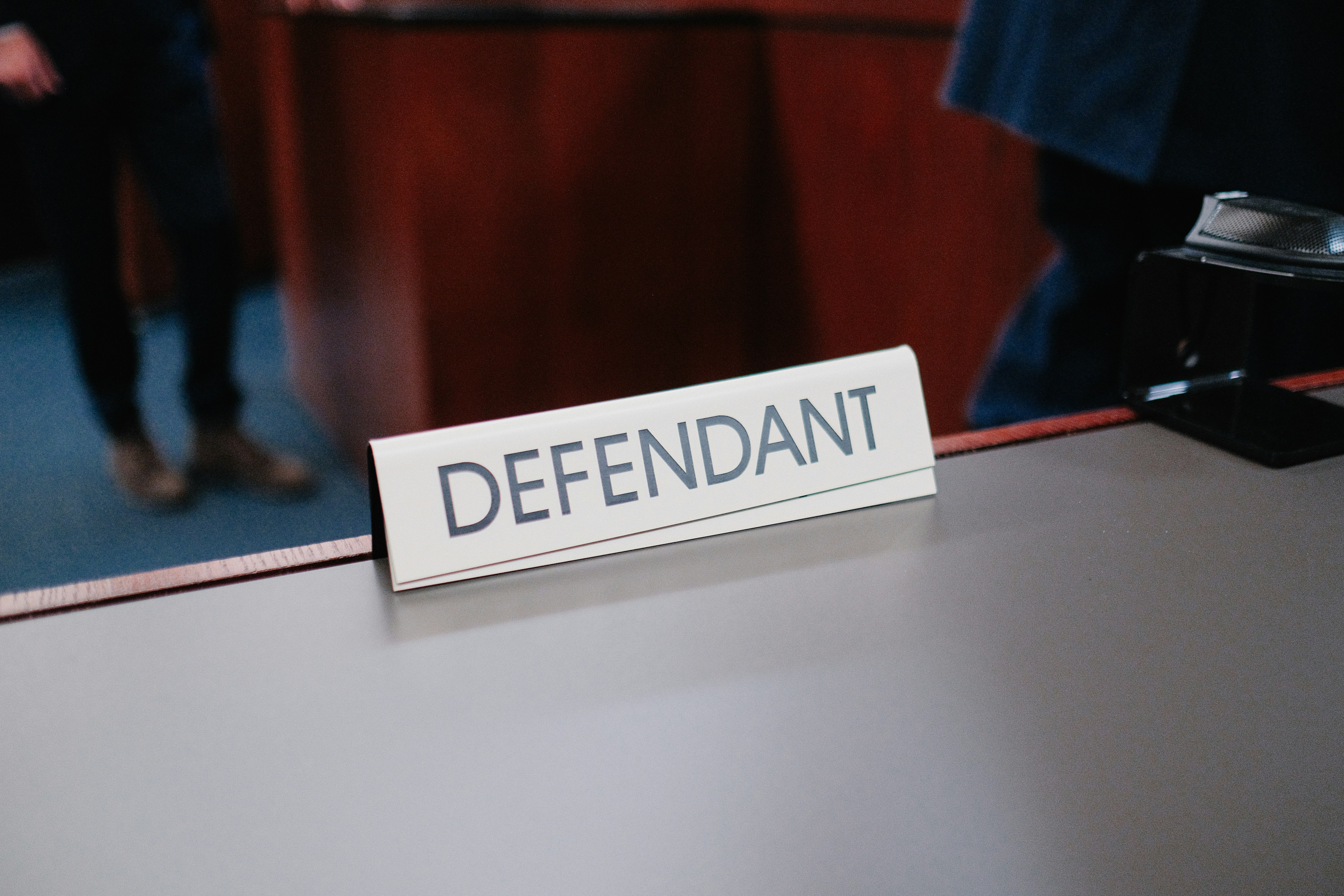What is the Difference Between Being Charged vs. Convicted? – ATX Legal
There is a big difference between being charged and convicted. Understanding this is essential after being arrested. To be charged with a crime means that an individual has been formally accused of that crime either by police or a grand jury. This formal accusation triggers the start of the criminal case, but it is not indicative of guilt.
In contrast, a conviction means the defendant has been found guilty, where a court has determined, beyond reasonable doubt, that the defendant is guilty of the crime for which they were charged with committing. This conviction carries with it the full weight of the law, leading to sentencing that may include fines, probation, jail time, or other forms of punishment. Contact us for a free 30 minute phone consultation.
Being Charged in the Texas Criminal Justice System
Being charged with a crime sets the case in motion. An individual becomes formally accused when a police officer files a report or a grand jury issues an indictment. From the moment of arrest, the defendant has the right to secure legal counsel and begin building a defense. Despite the arrest, the individual maintains the presumption of innocence – a fundamental principle meaning they are considered innocent until the prosecution proves their guilt in a court of law.
The Arrest Process in Texas
In Texas, the arrest process must adhere to strict legal guidelines. A police officer can only detain an individual if there is reasonable suspicion that they are involved in a crime. If this suspicion escalates to probable cause, an arrest can be made. Following the arrest, a preliminary hearing may take place where the prosecution is tasked with demonstrating that there is enough evidence to proceed with criminal charges.
The Difference Between Being Charged and Being Proven Guilty
The key difference between being charged and convicted is the outcome of the criminal trial. A charge is the starting point, where someone is formally accused of committing a crime. However, a charge does not determine the outcome. Only through the careful and deliberate judicial process, where evidence is presented and scrutinized, can a jury or judge reach a verdict of guilty, leading to a conviction. This conviction signifies that the defendant’s guilt has been established to the point that there is no longer any reasonable doubt.
Rights and Responsibilities After Being Charged
Following a charge, the accused retains specific rights that are essential for ensuring a fair trial. Among these rights are the ability to remain silent to avoid self-incrimination and the right to legal representation. These rights are in place to balance the scales of justice, ensuring that the court does not unfairly prejudice a person who has not been proven guilty.
Alongside these rights are responsibilities such as adhering to bail conditions, which may include restrictions on travel or behavior, and the obligation to appear at all court proceedings related to their case. Failure to comply with these responsibilities can lead to additional legal consequences, potentially complicating the criminal case and affecting the difference in outcome between being charged and convicted.
Navigating the Legal Process After Being Charged
For the accused person, navigating the criminal justice system is a complex journey that involves multiple stages, from arrest to potentially pleading guilty, to trial. Having a criminal defense attorney by your side is not just a right but a necessity for guidance through this labyrinth.
These legal experts bring extensive experience to the table, ensuring that all procedural requirements are met, evidence is meticulously examined, and your rights are fiercely protected. The role of legal counsel is not only to navigate the legal system but also to serve as your advocate, offering advice on when to plead guilty, bail conditions, and the jury selection process. A seasoned attorney can often mean the difference between a conviction and an acquittal, or between a harsh sentence and a more favorable outcome.
Right to Legal Representation
The right to counsel is a foundational principle of the criminal law system, safeguarding the fair trial rights of the accused. This right is extended to all individuals, regardless of the severity of the crime they are charged with.
Hiring a qualified criminal attorney can significantly influence the direction and outcome of a criminal trial. These legal professionals are adept at dissecting the prosecution’s case, challenging evidence, and crafting a compelling defense strategy. They can negotiate a plea bargain and are skilled in the art of persuasion, which can impact the trial. The quality of your legal counsel can often be the critical factor in whether one is convicted or exonerated.
What is an Indictment?
An indictment is a formal step in the criminal justice process whereby a grand jury issues a formal accusation against a person, alleging they have committed a crime. This occurs after the prosecution presents evidence and they and concludes there is sufficient basis to proceed with a criminal case. It is typically only used for felony charges. It still does not mean you have been found guilty or been convicted of anything.
Do Arrest Records Show Up on a Background Check?
Arrest records do appear during background checks, potentially affecting employment opportunities, among other aspects of life. While an arrest does not equate to a conviction, it can still raise concerns during the hiring process and might require explanation. Certain laws and regulations may limit the use of arrest records in employment decisions, but this varies by location and industry. It is important for individuals to know their rights regarding what information can be disclosed in a background check.
Potential Bail and Pretrial Release
Following an arrest, an individual may be granted bail and pretrial release, depending on the circumstances of their crime and criminal record. Bond conditions are set during a hearing and are meant to ensure that the arrested person appears at future court proceedings. Factors influencing bond conditions may include the nature of the crime, potential flight risk, community ties, and past criminal behavior. Adherence to these conditions is critical; violation of bond conditions can lead to re-arrest and potential jail time, complicating the arrested person’s situation.
Criminal Trial – Building a Defense Strategy
Building a robust defense strategy is essential for anyone charged with a crime. This process includes the meticulous collection of evidence, securing witness statements, and examining the prosecution’s case for weaknesses. An experienced criminal lawyer will also prepare for plea negotiations, which could potentially reduce the severity of the sentence, lessen jail time, or, in some cases, result in the withdrawal of a guilty plea. A strong defense strategy is crucial as it may influence the judge’s or jury’s view of the defendant’s guilt and can be the deciding factor in the outcome of the trial.
The Role of Probable Cause and Reasonable Doubt
Probable cause is a critical legal concept that underpins the actions of police officers during the initial stages of an investigation. It refers to the requirement that law enforcement has a reasonable basis for believing that a crime has been committed before making an arrest, conducting a search, or obtaining a warrant.
This standard is more than mere suspicion but does not require the level of evidence necessary to prove someone guilty at a trial. In the context of an arrest, probable cause might stem from a police officer’s direct observation, the collection of physical evidence, or the existence of criminal records that suggest the individual’s involvement in the crime. Without probable cause, any evidence gathered may be considered inadmissible in court, which can significantly impact the prosecution’s ability to establish guilt.
Collecting Evidence and Witness Statements
Thorough investigation and collection of witness statements forms the bedrock of a strong criminal defense. Criminal attorneys work diligently to amass evidence that might corroborate their client’s innocence or challenge the prosecution’s allegations.
The potential evidence presented during a trial can significantly impact plea negotiations and ultimately affect the jury’s verdict. It is not uncommon for the strength of a defense to prompt a plea bargain, where the prosecutor may offer a reduced sentence in exchange for a guilty plea, especially when they face a potential challenge in proving the defendant’s guilt.
Plea Bargains and Their Implications
Plea bargains play a pivotal role, serving as a mechanism to resolve criminal cases without the need for a trial. These agreements typically involve the defendant agreeing to plead guilty to a lesser charge, or fewer charges, in exchange for a more lenient sentence or other concessions. The implications of accepting a plea deal are profound – it can mean reduced jail time or probation instead of prison, and potentially less impact on the criminal record of the person convicted of a crime. However, it requires the accused to waive their right to a trial, where they might have been found not guilty. A plea bargain can be complex, and understanding the full implications necessitates the guidance of adept legal counsel.
Understanding the Implications of a Conviction
A conviction carries with it significant repercussions that extend beyond the immediate sentence. The direct consequences may include jail time, fines, or probation. Moreover, a conviction results in a criminal record that can have lasting effects on employment opportunities, voting rights, and eligibility for public benefits. For those convicted of a crime, the social stigma and legal ramifications can pose substantial barriers to reintegrating into society. Understanding the full scope of how a conviction can alter one’s life is crucial when considering plea bargains and preparing for trial.
Understanding the Trial Process
The trial process is the arena in which the prosecution and defense lay out their cases before a judge or jury. It is a structured process where each side presents its evidence, calls forth and cross-examines witnesses, and argues the merits of the case. Criminal trials are governed by strict rules regarding what legal arguments may be conducted, enforced by the judge. A thorough understanding of these procedures is essential, as the trial’s outcome will determine the accused’s fate – resulting in either being found guilty of a crime based on the weight of the evidence, or a declaration of innocence by the court with an acquittal. If a person is convicted, sentencing follows.
Working with an Experienced Local Criminal Attorney
Engaging an experienced local criminal defense attorney is crucial for anyone facing criminal charges. A seasoned lawyer with knowledge of the local legal system, police practices, judges, and prosecution tactics can provide invaluable assistance. They can navigate the complexities of the criminal justice system, ensuring that the accused’s rights are protected throughout the process. From the initial arrest and setting of bail conditions to the plea negotiations and the trial, a qualified criminal attorney stands as the defendant’s champion, fighting to secure the best possible outcome. Fill out a contact form, or text us today for a free consultation.



